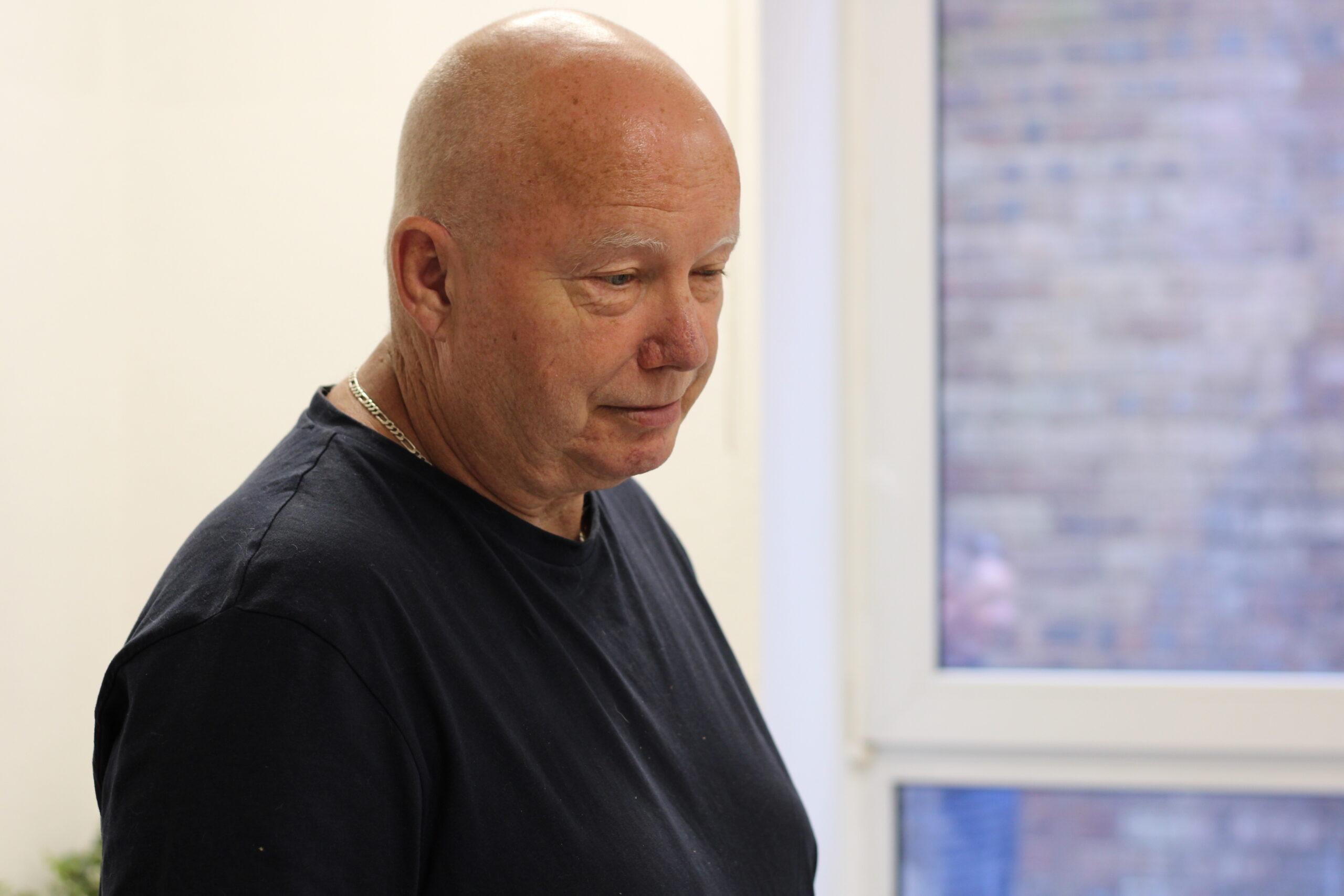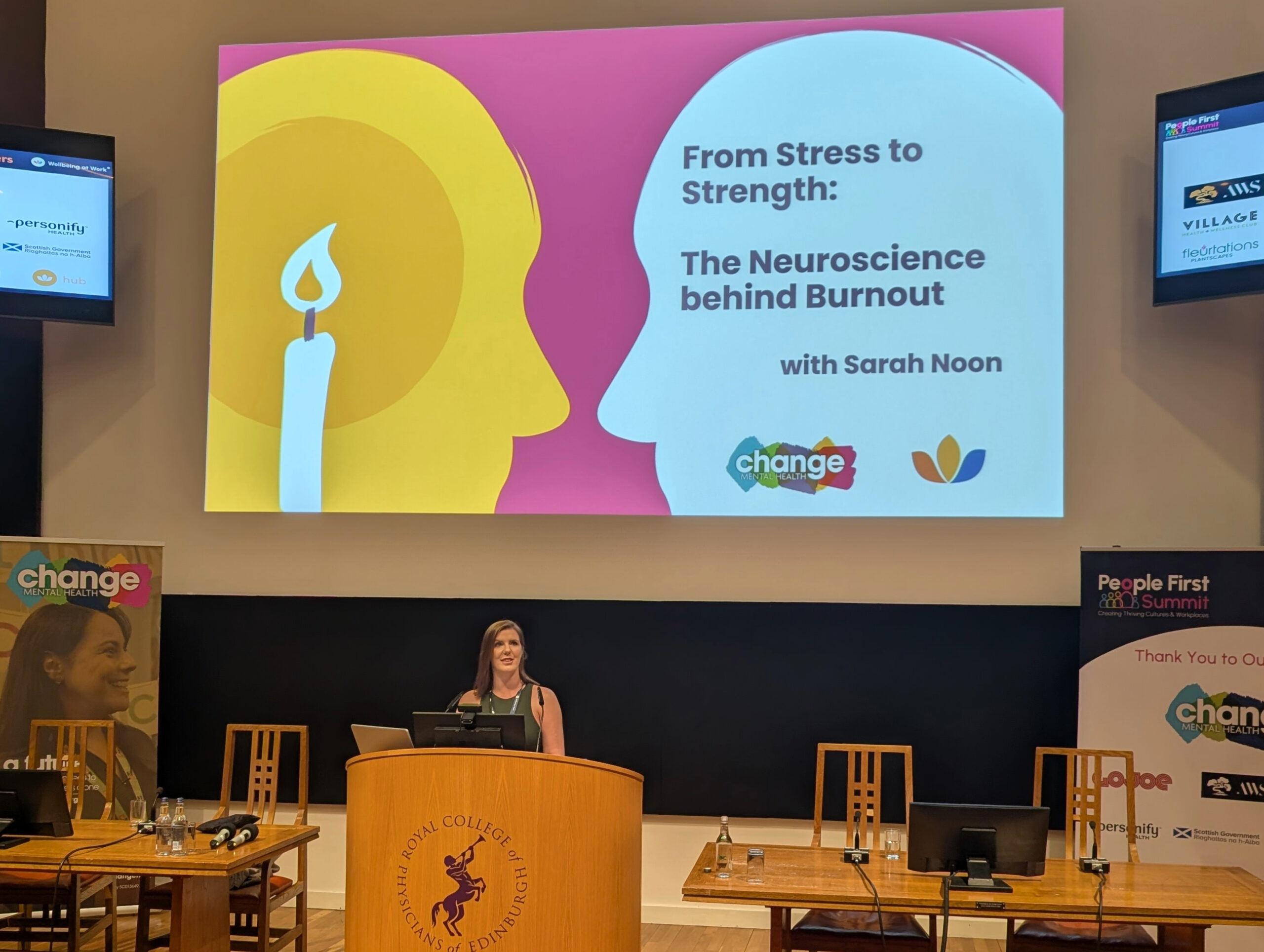When service ends, caring begins: Help for Angus carers of veterans
Our Angus service offers early support to those caring for veterans and serving personnel, helping with systems, stress and everything in between.

When someone leaves the Armed Forces, it doesn’t just affect them. The people closest to them – partners, family members, friends – often take on caring roles without ever calling it that. They support with daily routines, emotional strain, medical needs or simply the fallout of trying to get by in civilian life. Most never ask for help.
Our service in Angus is trying to change that. The Veterans Carer Support service offers practical, emotional and one-to-one support to unpaid carers of veterans and serving personnel. The focus is on early intervention and preventative support, before things reach breaking point.
In this article, Ian Smilie, Outreach Worker for the service, draws on his own background in the Royal Engineers and Eddie Scott, a veteran, carer and Carer Support Worker in Tayside, adds further insight.
why carers of veterans in Angus need more support
Leaving the military brings a mix of loss, confusion and pressure – not just for the person who served, but for those around them. Systems that were once automatic – like housing or healthcare – become unclear and frustrating. Carers are often left trying to manage everything without any guidance.
Eddie describes how unprepared he was for civilian life:
“I had no knowledge of benefits, housing, medical, employment or how to access these areas. It was only through family guidance I managed to negotiate all of this.
“The benefits system was a minefield. I was treated like a beggar by social security staff. In the Forces, everything is done for you to a degree. You need a lot of patience to deal with civil servants who treat you like a nobody.
“We all struggle to adapt to civilian life where things don’t appear as structured as in the services. Everything was clearly explained and you knew what to expect. In civilian life, when trying to obtain information from the Department of Work and Pensions, doctors or job centres, it’s all available in leaflets or online. There’s no face-to-face discussion. When that does happen, you are treated or spoken to in a manner that is demeaning.”
Ian, now leading support for carers of veterans, described similar challenges:
“‘Civvies’ don’t think or act the same. I understand the military experience and the values that come with it. That helps me support carers. I can help them understand why the person they care for might act the way they do.
“A lot of carers feel anxious and alone. There’s often limited awareness of what support is out there. That’s usually compounded by financial worries and the ability to be heard by public systems.”
what support for carers does the service offer
The service is open to anyone aged 18 or over who provides unpaid care to a veteran or someone currently serving. Support is shaped around the person and what’s going on in their life. This can include:
- Help with housing, healthcare or benefits
- Support filling in forms
- Someone to speak up for you when needed
- Time to talk
- Signposting to the right people.
Once someone gets in touch – through referral or directly – Ian arranges a time to talk. If the service is right for them, they go through a full assessment to identify what matters most. From there, they decide together how to move forward.
Ian explains the purpose of the service:
“The service is offering early intervention and prevention. To act as an advocate for the individual with an aim to skill up the person to advocate for themselves going forward. Carers need to look after themselves as a priority. However, my experience would suggest they are last rather than first in the priority of care.”
voices from experience
Eddie served nine years in the Royal Corps of Signals as a Combat Powerman, working with generators and vehicles and mentoring new recruits. Years later, he cared for his second wife for seven years – an experience that shaped the rest of his career.
“It was suggested I go into care work because of what I’d learned. I was fortunate to find employment and have supported various people with different health and mental health needs to live an independent lifestyle. I’ve supported people with learning disabilities, autism, addiction and mental health issues. I’ve seen how important the right support can be.”
Over the years, he’s worked with a wide range of people, including those with complex and overlapping needs. That insight now shapes how he speaks to others.
“I’ve been there. I have the confidence that I can deliver a service to those I support. I can look back at my experiences both personally and professionally. I can give advice in a way that others can understand and explain the process of how systems may work and how long it may take.”
Eddie Scott, Carer Support Worker, Tayside
Ian’s path after leaving the military was different, but no less rooted in frontline support. After leaving the Royal Engineers, he joined the prison service, where he moved into drug and alcohol work.
“There were high levels of drug and alcohol offending within the population,” he explained. “At the same time, I was studying alcohol counselling and practising as a volunteer in the community. I was also studying Drug and Alcohol Studies at university by distance learning.”
That eventually led him to leave the prison service and take on a community role as a Lead Officer with the Alcohol and Drug Partnership.
“It allows me to shape any discussion and approach I have with carers, whether they’ve been part of the military or are caring for someone who has. It helps me support the carer to understand why the person they’re looking after behaves the way they do, especially around mental health or the military mindset.
“In short, it helps me look at options and support for the individual and the person they care for.”
barriers carers of veterans face
One of the biggest barriers is that many people don’t see themselves as carers. “They’re just doing what needs to be done,” Ian said. “But they’re carrying a lot. Emotionally, practically and they’re often isolated with it.”
He also points to a culture of silence and pushing through. “Veterans sometimes don’t trust the system. If you’re caring for someone like that, it can feel like you have to do everything alone. And people often don’t know what support is available.”
He added: “In my experience, many carers are dealing with isolation, anxiety and low mood. Some don’t want to be seen as complaining. Others think services won’t understand the situation they’re in.”
That’s why the relationship comes first. “One of the most important things we offer is a safe, non-judgemental space. Somewhere people can just talk.”
if you care for someone who served
This service is here to help. Whether you’re a partner, family member, friend or neighbour — if you’re supporting someone who has served – you don’t have to do it alone.
Right now, the service offers one-to-one support, but the long-term goal is to build peer networks too. “There are no groups yet,” Ian said. “But we want to create peer support shaped by the carers themselves. It needs to come from them, not be imposed on them.”
For those unsure about whether to reach out, Eddies advice is simple:
“What harm can it do? Reaching out might be the best thing they’ve done. Or they might get signposted to a resource that’s more suitable for them through the service.”
Ian’s advice to veterans goes to the core of who they are: “Like the Forces, things are easier achieved within a team. We’re here to support you toward a common goal.” Ian adds, “If the service is not for you, that’s fine. But I’d rather someone got in touch than stayed silent. We can always help find the right place for them.”
referral
If you are a professional looking to refer an individual into Veterans Carer Support, please download the form above, fill it in and submit it to tayside@changemh.org. A member of our team will be back in touch within two working days.
support
Our National Advice and Support Service can help you and people you care for with mental health concerns and money worries.
We can link and signpost you to relevant local and national support, including our own Change Mental Health services, as well supporting with debt, grants and benefits.
The service is open Monday to Friday, 10am to 4pm (closed for lunch between 12.30pm to 1.30pm). Contact 0808 8010 515, email advice@changemh.org or fill in the form on the service webpage.
For full details about the service, visit the National Advice and Support Service webpage.





